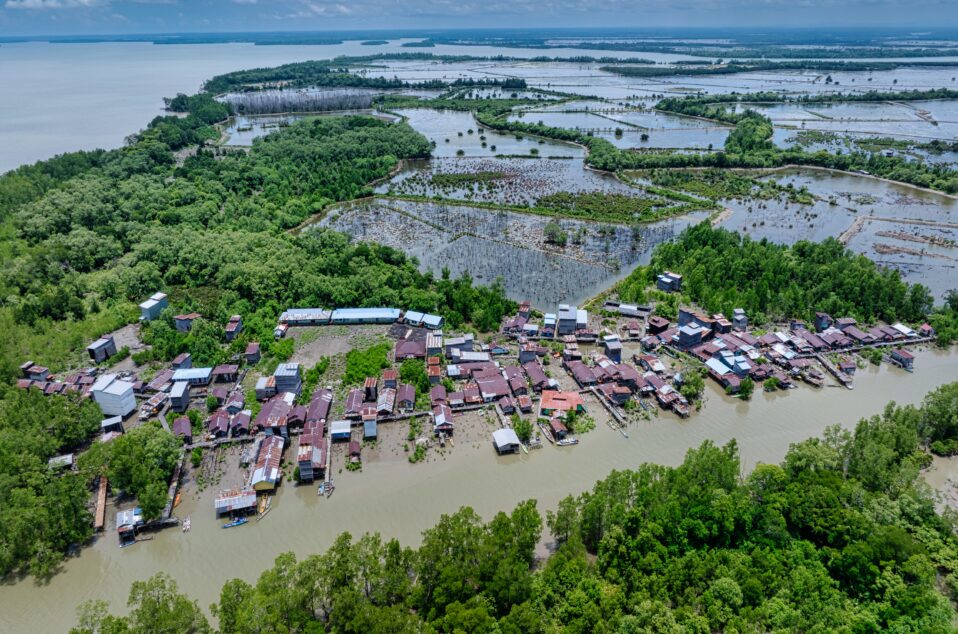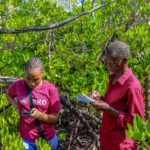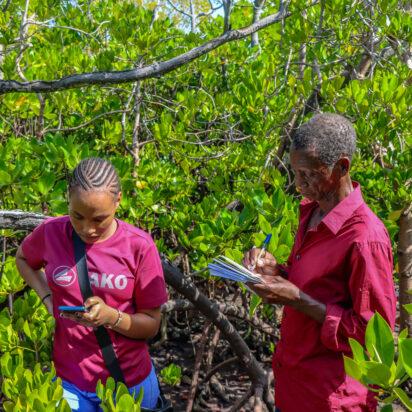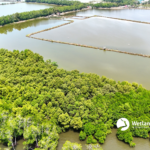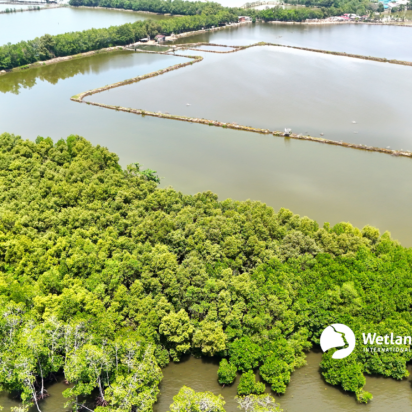Climate Resilience for Migratory Birds and People along the East Atlantic Flyway
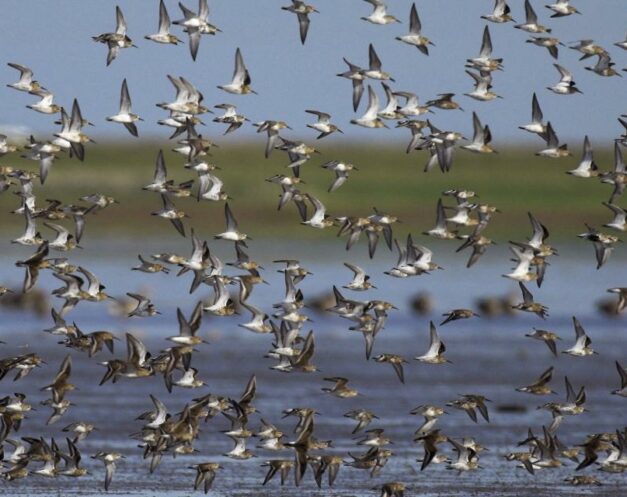
Wetlands International, Common Wadden Sea Secretariat (CWSS), BirdLife International, BirdEyes, and PRCM amongst other partners have launched a new initiative to protect the ecosystems and communities in 11 countries along the East Atlantic Flyway, one of the world’s most important migratory routes for waterbirds.
Wetlands: critical lifelines for millions of waterbirds
Stretching across more than 33 countries, the East Atlantic Flyway links critical wetlands from the Arctic Circle to the southern tip of Africa. Each year, millions of migratory birds travel the East Atlantic Flyway, using critical wetland sites to rest, feed, and breed. These ecosystems also support the wellbeing and resilience of the people who live near them.
But these wetlands are under threat. Climate change is amplifying droughts, flooding, sea-level rise, and erosion, damaging the delicate balance of nature and disrupting the lives of communities that depend on these ecosystems for food, livelihoods, and protection.
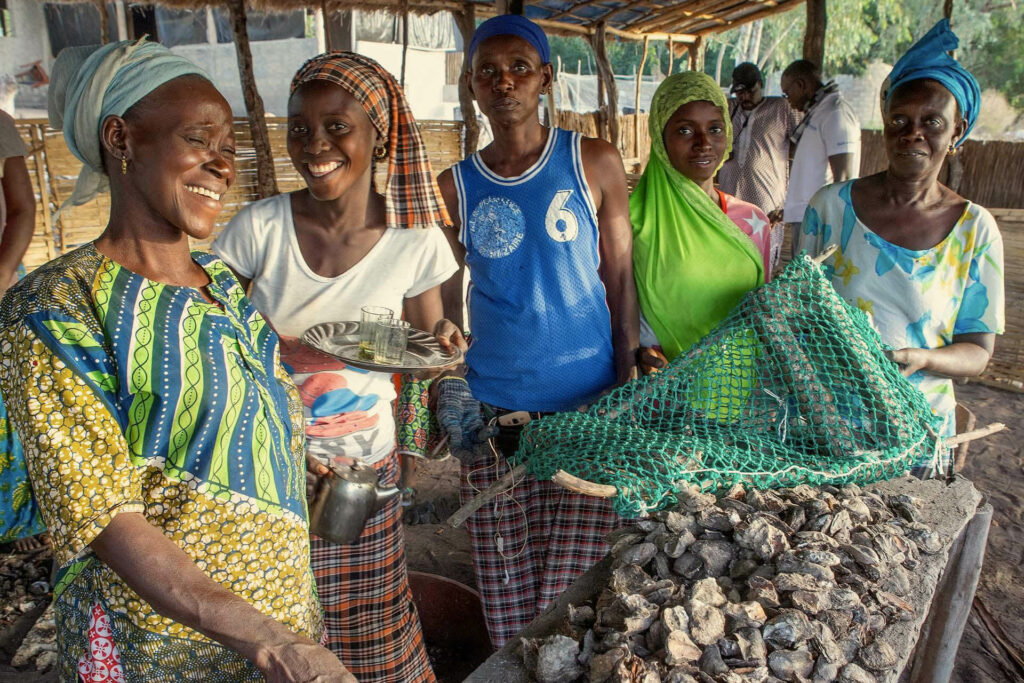
In response, Wetlands International and partners have launched a new ‘Climate-Resilient East Atlantic Flyway’ (CREAF) programme to safeguard these critical wetland sites for birds and people from Africa and Europe. We will improve monitoring and management, implement nature-based solutions, promote policy reform, and empower local communities, especially women and youth.
Project Pillars
- Wetland Management: Restoring and safeguarding wetlands across the East Atlantic Flyway to protect migratory birds, enhance biodiversity, and strengthen climate resilience for the communities that depend on these vital ecosystems.
- Monitoring & Research: Building robust local capacity to monitor bird populations, wetland health, and climate change impacts, generating the data and insight needed to guide effective conservation, policy, and planning.
- Policy & Governance: Embedding wetlands and flyway conservation into national policies and regional frameworks, ensuring coordinated, science-based action to protect critical habitats across 11 countries.
- Empowering Communities: Equipping women, youth, and local monitors with tools, knowledge, and opportunities to lead in conservation. CREAF supports nature-based solutions that are not only sustainable but also livelihood-driven
The programme will run in 9 critical wetland sites across 7 countries in West Africa that are not only biodiversity hotspots, but also buffer zones against climate risks such as coastal erosion, flooding, and drought: Banc d’Arguin National Park, Mauritania, Bijagós Archipelago, Guinea-Bissau, Saloum Delta, Senegal, Diawling National Park, Mauritania, Inner Niger Delta, Mali, Lower Mono Delta, Togo and Benin and additional sites of flyway importance across the West African coast.
At the heart of the programme are the people protecting wetlands and monitoring migratory birds, such as community leaders, youth, and researchers.
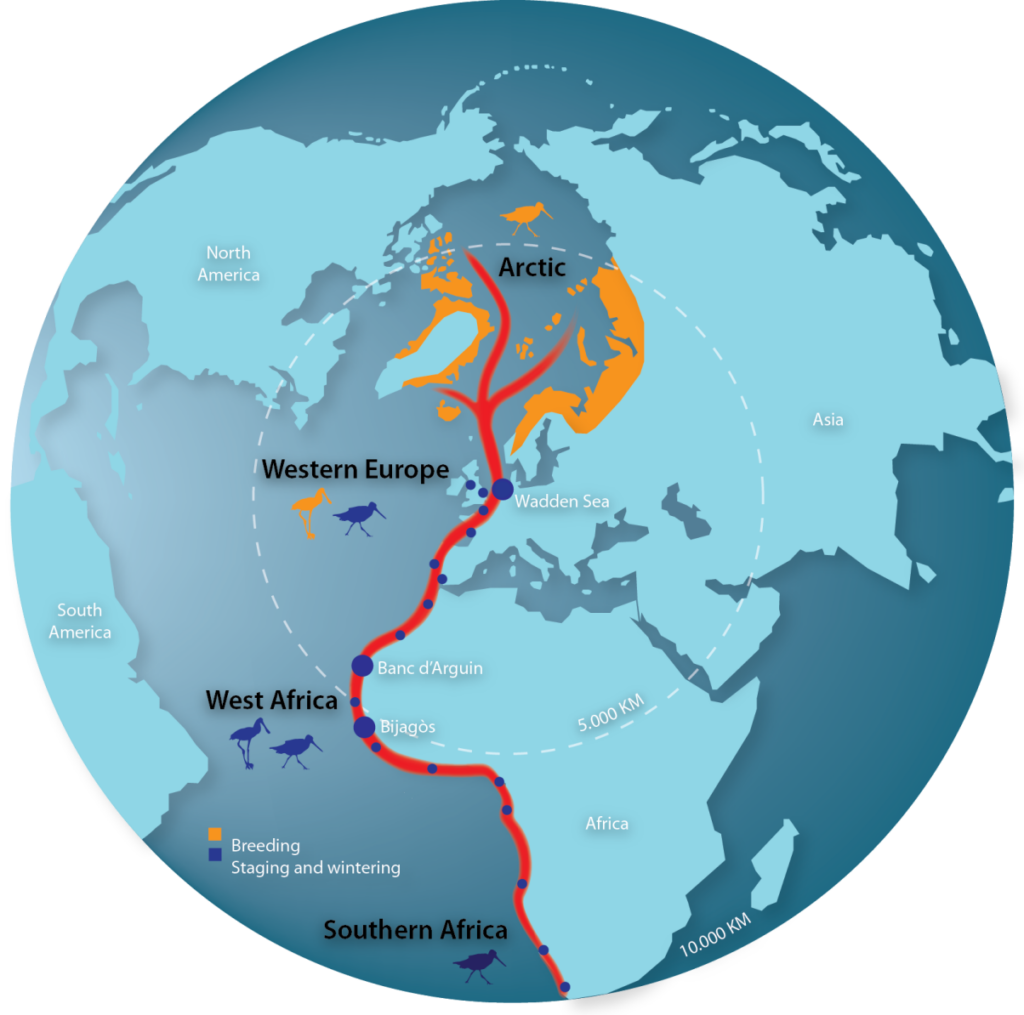
The programme combines science, community knowledge, and policy dialogue to:
- Conduct climate risk and vulnerability assessments at each site.
- Implement site-based restoration and adaptation measures tailored to local needs.
- Strengthen the role of site managers, government officials and private companies in the effective management of the sites through capacity building and advocacy campaigns.
- Integrate local communities, especially women, into the management of coastal sites, to promote sustainable natural resource use and the development of biodiversity-friendly livelihoods.
- Increase the capacity of academic institutions in wetland ecology and ornithology
- Integrate long-term wetland and migratory bird conservation commitments in biodiversity and climate adaptation policies and legislations
- Integrate early warning systems and climate forecasting into wetland management.
- Foster South-South cooperation and flyway-scale governance and integration of the flyway approach into biodiversity and climate change policies.
Wetlands International leads the implementation of several key components of the programme, focusing on restoring ecosystems, strengthening local management capacity, and promoting nature-based solutions. We support partners across the flyway with technical expertise, capacity building, and coordination, ensuring that climate resilience efforts are grounded in science, inclusive governance, and strong local ownership. We are also the implementing partner in the Saloum Delta, Senegal.
CREAF contributes to the Global Biodiversity Framework, the Paris Agreement on Climate Change and the UN Sustainable Development Goals (SDGs).
The East Atlantic Flyway explained (a video by Wadden Sea Flyway Initiative):
15 partners:
- Common Wadden Sea Secretariat (CWSS) – Lead Partner
- BirdLife International
- BirdEyes, University of Groningen, Centre of Excellence for Global Ecological Change
- Angola: Omulamba Biota Conservation
- Guinea Bissau: Instituto da Biodiversidade e das Áreas Protegidas (IBAP)
- Guinea-Bissau, Mauritania and Senegal: Regional Partnership for the Conservation of the Coastal and Marine Zone in West Africa (Partenariat Régional pour la Conservation marine et côtière, PRCM)
- Ghana: Centre for Biodiversity Conservation Research
- Guinee: Guinee Ecologie
- Mauritania: Banc d’Arguin National Park (Parc National du Banc d’Arguin, PNBA)
- Morocco: GREPOM
- Namibia: Namibia Nature Foundation (NNF)
- Nigeria: Nigeria Conservation Foundation (NCF)
- Senegal: Wetlands International
- Sierra Leone: The Conservation Society of Sierra Leone (CSSL)
- South Africa: BirdLife South Africa
Furthermore, the project has political partners in each country where we implement the programme.
More information:
Webpage Climate Resilience East Atlantic Flyway
Supported by:
International Climate Initiative (IKI), funded by the Federal Government of Germany.
Concerns related to the project can be submitted through the IKI Independent Complaint Mechanism: Submit a Complaint
Contact
Ana Colorado McEvoy
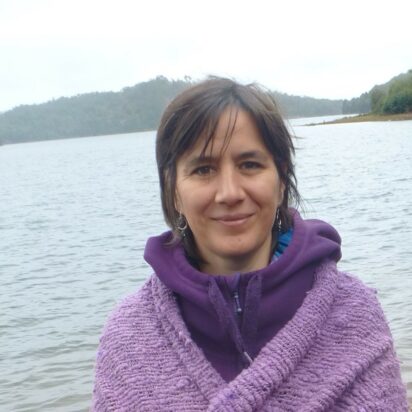
Banner picture: Common Wadden Sea Secretariat (CWSS)


